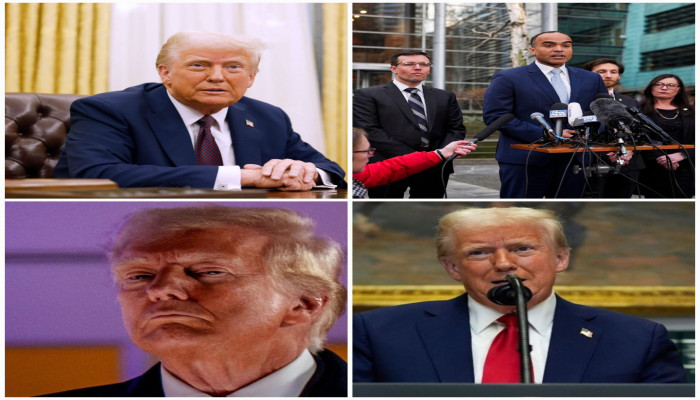Federal Judge calls Trump’s birthright citizenship order ‘blatantly unconstitutional’
- In Reports
- 03:06 PM, Jan 24, 2025
- Myind Staff
A federal judge in Seattle has issued a temporary restraining order to block former President Donald Trump's executive order aimed at ending birthright citizenship, calling the policy “blatantly unconstitutional,” according to CNN.
Judge John Coughenour appointed by former President Ronald Reagan ruled a lawsuit filed by Washington Attorney General Nick Brown and three other states led by Democrats. The temporary restraining order, which will remain in effect for 14 days, pauses the implementation of the policy while further legal arguments are considered.
“I have been on the bench for over four decades. I can’t recall a case where the legal question was so unequivocal,” Judge Coughenour said, expressing disbelief over the legitimacy of the executive order. “Where were the lawyers?” he asked, naming the order’s constitutionality mind-boggling.
The legal challenge argues that the executive order infringes upon the 14th Amendment, which grants citizenship to all children born in the United States and "subject to the jurisdiction thereof."
Lane Polozola, an attorney representing Washington state, highlighted the immediate harm caused by the policy, stating, “Babies are being born today under a cloud of uncertainty about their citizenship.” He also cautioned that denying citizenship to these children could lead to "long-term substantial negative impacts" and place a significant financial strain on state programs.
The Trump administration, however, contends that the 14th Amendment’s jurisdiction clause allows the president to exclude children born to undocumented immigrants and non-permanent residents. Justice Department attorney Brett Shumate urged the court to avoid making a "snap judgment" and requested additional time for further briefing.
Despite the restraining order, Trump has expressed his administration's intent to challenge the ruling. The executive order has already been met with several lawsuits, including those filed by immigrant rights groups, Democratic attorneys general, and individual plaintiffs.
In a different case in Maryland, Justice Department attorney Brad Rosenberg acknowledged that federal agencies had not started enforcing the order. “The executive order was issued three days ago during a time of transition between administrations,” Rosenberg explained, noting that agencies required time to create implementation policies.
The policy faces legal hurdles, with upcoming court hearings set to challenge its validity. In Maryland, a February 5 hearing will weigh whether to temporarily halt the order, while a New Hampshire court will hear arguments on February 10 regarding a request by civil rights and immigration groups for a preliminary injunction.







Comments